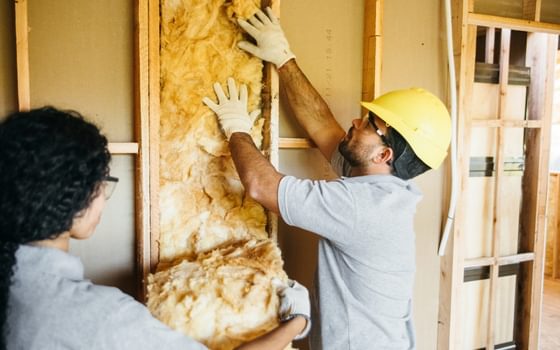Three things we’ve learned from the steel crisis
13 April 2016
This article first appeared at Business Green on 8 April 2016
It’s been a week since the news broke of Tata Steel’s decision to put its UK operations up for sale, triggering a tsunami of recrimination and finger-pointing.
Things are moving fast and the below risks becoming overtaken by events. But here are three things I’ve noticed from the farrago and the reactions to it – all of which speak to much bigger recurrent themes in the debate about how green we should go, and how fast.
1. Climate levies aren’t to blame, but that doesn’t stop (some) people blaming them
The same old clique of green-bashers popped up to blame the decline of UK steel on climate and energy levies. Their moment in the Sun was as instructive as it was depressing. Instructive because it showed what a hobby-horse “green taxes” still are for some parts of the (largely) right wing press. Depressing because, as usual, they’re flat wrong.
It turns out that only about 1% of the total costs of running a steel plant are down to climate policy. Tata has emphatically stated that it is primarily pulling out of the UK because of the colossal drop in the global price of steel, thanks to too much capacity in China. And a decision to effectively write-off its UK operations simply wouldn’t get taken on the basis of something so relatively marginal, particularly not given that the Government is trying hard to exempt the industry from levies anyway.
So why are climate levies attacked so often? Because they’re easy prey: there because Government put them there. If you think the Government should be much smaller or that we shouldn’t do much about climate change – or both – it makes sense to use this crisis point as an excuse to wallop something you dislike as a point of principle.
Is singling out green levies red meat to the Murdoch press? Yes. Is doing so much help at all to the people of Port Talbot? No. So let’s move on.
2. The best way to keep jobs might be something a little bit greener
Tycoon Sanjeev Gupta, a leading candidate to buy the Port Talbot plant, says it’ll never be competitive long-term if it doesn’t change the way it makes steel. Instead of blast furnaces – which melt iron ore using coking coal, both of which we need to expensively import – he intends to rekit the site with arc furnaces. These use electricity (lots of it – enough to power 100,000 homes) to melt used steel and refashion it into new. It’s worth noting that this kind of big refit may look rather more attractive to someone on the cusp of securing a huge plant at an ultra-knock-down price.
Gupta’s company, Liberty Steel, is already planning to switch to arc furnaces. They also use far less energy than blast furnaces and are far more flexible to demand, as they can be turned on and off easily. Plus of course, this opens up the tantalising prospect, in principle at least, of these plants one day being run on renewable electricity – such as might come from the in-limbo Swansea Bay Tidal Lagoon project.
There’s no long-term environmental case for shipping the steel we need for things like wind turbines in from abroad – particularly not if there’s the prospect of building a lower-impact, sustainable steel industry here. The decarbonising world will quickly come to demand it.
The great irony of those who blame levies for the crisis is that the UK Government has done nowhere near enough to ensure that the UK has the greenest and most efficient industries in the world. BIS/DECC’s long-term sector decarbonisation roadmaps for energy intensive industry lie dusty on the shelf, suffering from a pathological fear of the concept of industrial intervention; government support for carbon capture and storage was disgracefully pulled without warning last year.
3. People want the Government to do something
This crisis has ignited a debate about which parts of the economy Government should stand up for – and why. Banks or steel? Wales or London? Everyone has a view. It’s healthy, and here’s to more of it.
It’s becoming very clear that the Government’s belated promise to (apparently) do ‘whatever it takes’ to protect an industry isn’t a plan – it’s what you do when you actively and deliberately haven’t had a plan until it’s far too late and you suddenly realise people are upset about it. Chickens are coming home to roost, as successive governments have failed to enact a proper industrial strategy for the UK, and keystone sectors like steel that exist within it. Tata was asking Vince Cable for such a strategy four years ago. Industrial policy is specifically supposed to help bring about investment and confidence by helping to ensure demand, providing R&D support, and fighting at the highest level for a fair deal for UK workers – long before the industry faces trouble.
Free-marketeers suggest that the furnaces should be allowed to leave Blighty forever. They’re in the minority, and they’re wrong. Acolytes of subjecting the UK’s steel industry to the full force of the global free market tend to forget that China’s steel production has for years been hugely subsidised and driven by a proudly nationalistic industrial strategy of their own. Decisions on national industrial policy should not be taken through a highly London-centric lens. A thriving and sustainable steel industry in Port Talbot is vital to Wales as a whole. It is estimated that 40,000 jobs depend on the operation of the plant. The UK as a whole bears the scars of the impassive deindustrialisation of communities in the 1980s. It can’t happen again.
If the likes of Mr Gupta are to be believed steel can have a perfectly viable future in the UK. More broadly, it’s clear now that we desperately need renewed vigour in our approach to UK industrial policy, such as it is. That may not always mean keeping industries going no matter what, but guiding transitions and attracting new investors to declining areas. If we’re serious about a profound and rapid move away from a high-carbon economy that’s been bedded in for a century, it’ll need an active, committed and – yes – interventionist Government too.
Image: Nick Parkin Photography
Topics Environment Industrial strategy






